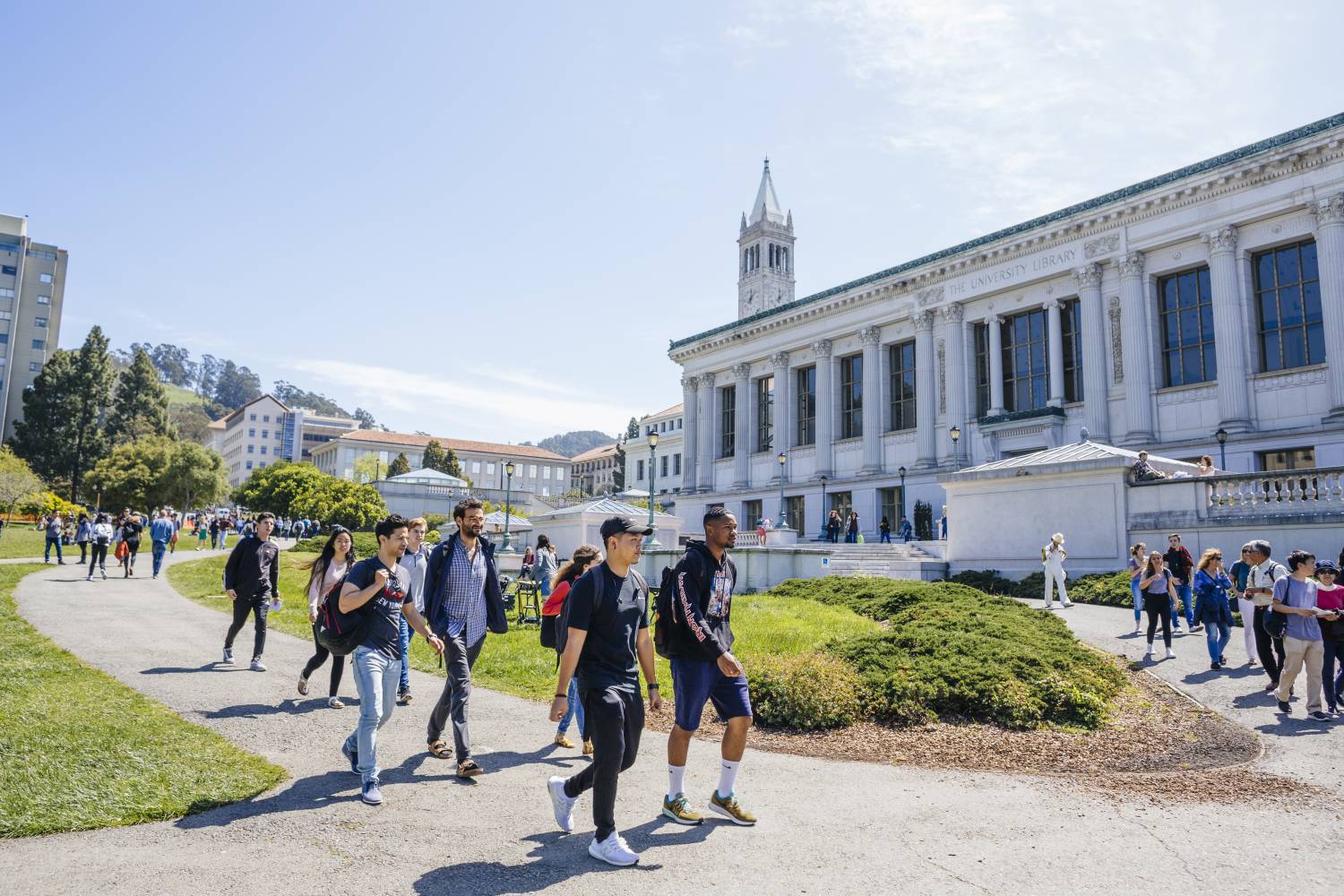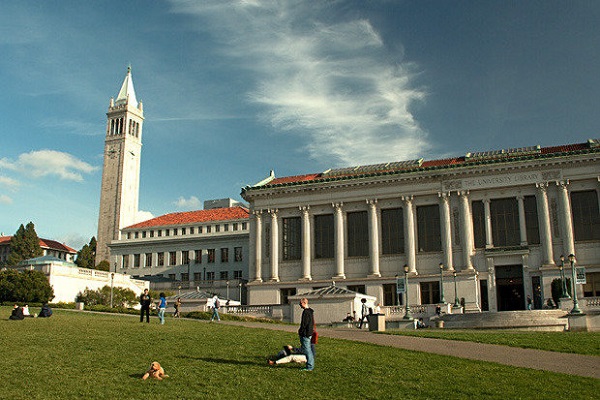The University of California, Berkeley, often referred to simply as UC Berkeley, is one of the most prestigious and well-known public universities in the world. Located in the city of Berkeley, just across the bay from San Francisco, it has become a hub for academic excellence, innovation, and social impact. From producing Nobel laureates to spearheading groundbreaking research, UC Berkeley’s influence extends far beyond its Californian roots.
But what really sets UC Berkeley apart? Why has it earned a global reputation as a leader in higher education? This guide will delve deep into the history, culture, and significance of UC Berkeley, uncovering what makes it such a special institution.
History of UC Berkeley
UC Berkeley was established in 1868, making it the oldest of the ten universities in the University of California system. Its foundation was the result of a merger between the private College of California and the state’s Agricultural, Mining, and Mechanical Arts College. This union created a comprehensive public university that would eventually become a global leader in research and education.
Throughout its history, UC Berkeley has been a center of academic and social change. In the 1960s, it became a focal point for the Free Speech Movement, reflecting its long-standing commitment to activism and progressive ideas. Since then, it has consistently pushed the boundaries in fields such as science, technology, and the humanities.
Campus and Location
Situated in the heart of the city of Berkeley, the university’s campus is renowned for its beauty and unique architectural style. From the iconic Sather Tower (Campanile) to the historic Hearst Greek Theatre, the campus is a blend of classical design and modern innovation. The proximity to Silicon Valley also allows UC Berkeley to be at the forefront of technological advancements.
The surrounding city of Berkeley is known for its eclectic mix of cultures, with a vibrant arts scene, diverse food options, and an engaged local community. It’s no surprise that the environment nurtures creativity and a spirit of discovery.
Academic Excellence
UC Berkeley’s academic programs are consistently ranked among the best in the world. The university offers over 350 degree programs through its 14 colleges and schools, including the College of Letters & Science, Haas School of Business, College of Engineering, and School of Law.
With a rigorous curriculum, Berkeley is known for fostering critical thinking and research skills in its students. Fields like Computer Science, Environmental Science, and Economics are particularly strong, with faculty members who are leaders in their fields. In addition, Berkeley’s interdisciplinary approach encourages students to think beyond their major and engage with a wide array of topics.
Nobel Laureates and Distinguished Alumni
One of UC Berkeley’s greatest claims to fame is its remarkable number of Nobel laureates. To date, the university has been affiliated with 110 Nobel Prize winners, many of whom have contributed to groundbreaking discoveries in fields like chemistry, physics, and economics. Names like Ernest Lawrence (who developed the cyclotron) and Richard Smalley (co-discoverer of fullerenes) are forever etched in Berkeley’s history.
Beyond academia, Berkeley’s alumni include notable figures in business, politics, and the arts. Steve Wozniak, co-founder of Apple Inc., and Jennifer Granholm, U.S. Secretary of Energy, are just a couple of the many high-profile individuals who have passed through Berkeley’s doors.
Research and Innovation
UC Berkeley’s research output is nothing short of extraordinary. The university is home to more than 100 research units, ranging from the Space Sciences Laboratory to the Energy Biosciences Institute. In particular, Berkeley has made significant contributions to the development of CRISPR technology, nuclear physics, and climate science.
The university’s close relationship with nearby Lawrence Berkeley National Laboratory further enhances its research capabilities, enabling collaboration on cutting-edge projects in renewable energy, quantum computing, and other high-impact fields.
Student Life at UC Berkeley

Life at Berkeley is dynamic, diverse, and engaging. With over 1,200 student organizations, there’s something for everyone, from academic societies to cultural clubs and community service groups. Berkeley’s student body is a melting pot of cultures, with students from all 50 U.S. states and over 100 countries.
The university promotes inclusivity, with resources dedicated to ensuring that students from all backgrounds feel welcome and supported. The vibrant campus life, combined with the energy of Berkeley city, creates an environment that is both intellectually stimulating and socially fulfilling.
Sports and Athletics
UC Berkeley’s athletic teams, known as the Golden Bears, have a rich tradition of excellence, particularly in football, basketball, and swimming. The university competes in the NCAA Division I as part of the Pac-12 Conference. Notable athletic achievements include Olympic gold medalists and national championships in various sports.
The Memorial Stadium, with its stunning views of the San Francisco Bay, is an iconic venue where students and fans gather to cheer on their teams, creating a strong sense of community and school pride.
Housing and Accommodation
UC Berkeley offers a variety of housing options for students, both on and off-campus. On-campus dormitories like Unit 1, Unit 2, and Clark Kerr Campus provide a convenient living environment, complete with dining halls and study spaces. For those seeking off-campus housing, the nearby neighborhoods offer everything from shared apartments to single-family homes, allowing students to choose what best fits their lifestyle and budget.
Admissions Process
Getting into UC Berkeley is highly competitive, with an acceptance rate of around 14%. Applicants are evaluated based on a holistic review process, which includes academic performance, extracurricular activities, personal statements, and letters of recommendation. Strong grades and standardized test scores are important, but Berkeley also looks for students who demonstrate leadership, creativity, and a passion for learning.
Tuition and Financial Aid
As a public university, UC Berkeley’s tuition fees are lower for California residents compared to out-of-state and international students. However, attending Berkeley is still a significant financial commitment. Fortunately, the university offers a range of scholarships, grants, and financial aid programs to help make education more accessible.
Berkeley’s “Blue and Gold Opportunity Plan” ensures that California residents with household incomes below $80,000 pay no tuition, making it an attractive option for in-state students from low- and middle-income families.
UC Berkeley’s Global Impact
Berkeley’s influence reaches far beyond the U.S., with its research and educational partnerships spreading across the globe. The university collaborates with leading institutions in Asia, Europe, and Africa, working on issues ranging from global health to climate change.
Through programs like the Global Edge initiative, students have the opportunity to study abroad and engage in cross-cultural exchanges, broadening their horizons and preparing them for leadership roles in an increasingly interconnected world.
Sustainability and Green Initiatives
UC Berkeley has long been a leader in sustainability, with numerous projects aimed at reducing the university’s carbon footprint. From zero-waste goals to energy-efficient building designs, Berkeley is committed to environmental stewardship. The campus also features sustainable food programs, promoting local and organic sourcing in its dining facilities.
Career Services and Opportunities
Berkeley’s Career Center offers a wide range of services to help students transition from university life to the workforce. With personalized career counseling, resume workshops, and job fairs, students are given the tools to succeed in their chosen careers. Many Berkeley graduates go on to work in prestigious companies in industries like tech, finance, and consulting, with internships often serving as stepping stones to full-time employment.
Challenges and Opportunities for the Future
While UC Berkeley remains a top-tier institution, it faces challenges such as state budget cuts and increasing student demand for services. However, the university continues to innovate and adapt, focusing on enhancing the student experience, improving faculty diversity, and addressing societal challenges like climate change and social justice.
Conclusion
UC Berkeley stands as a beacon of academic excellence, research innovation, and social change. Its history, diverse student body, and commitment to creating a better world make it one of the most respected institutions globally. Whether you’re drawn to its cutting-edge research, vibrant student life, or stunning campus, UC Berkeley offers an unparalleled educational experience.
FAQs
1. What is the acceptance rate for UC Berkeley?
The acceptance rate for UC Berkeley is around 14%, making it a highly competitive university.
2. How does UC Berkeley rank globally?
UC Berkeley consistently ranks among the top 5 public universities in the world and within the top 30 overall.
3. What are the most popular majors at UC Berkeley?
Some of the most popular majors include Computer Science, Economics, Business Administration, and Electrical Engineering.
4. How diverse is the student body at UC Berkeley?
UC Berkeley prides itself on its diversity, with students representing over 100 countries and a wide range of cultural backgrounds.
5. What opportunities exist for international students?
International students at UC Berkeley have access to a wealth of resources, including academic support, cultural organizations, and career services tailored to global careers.
